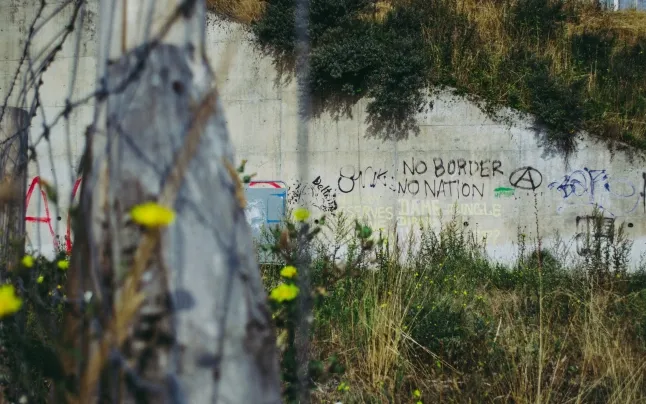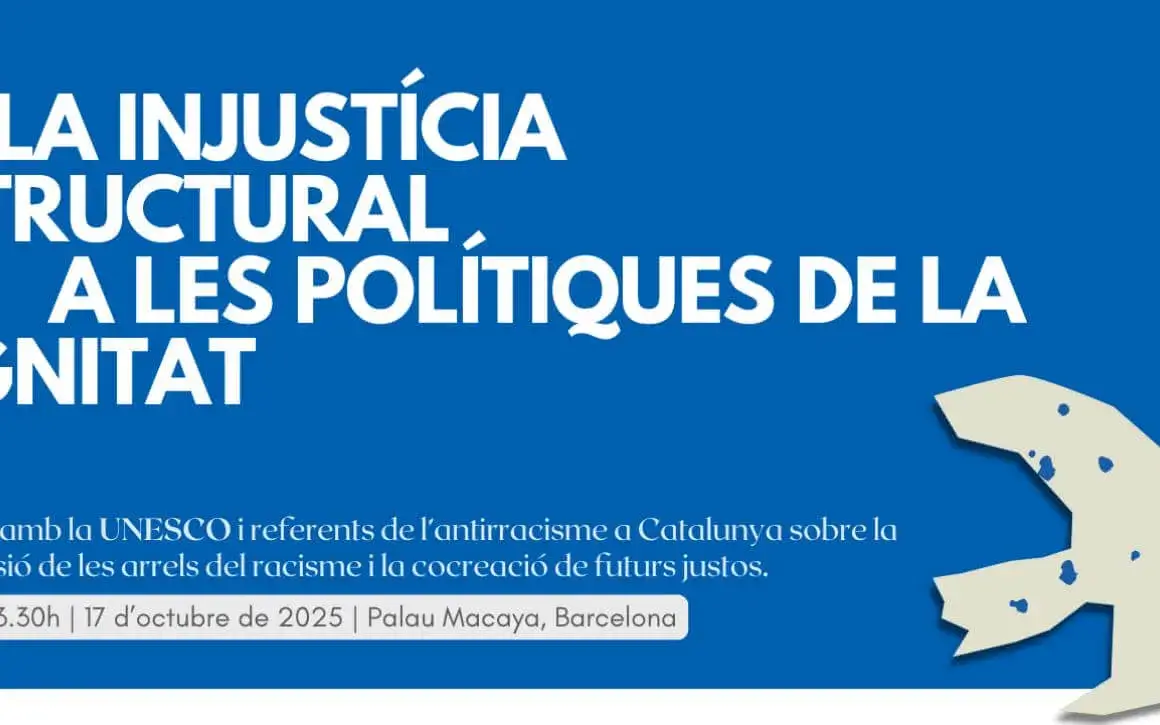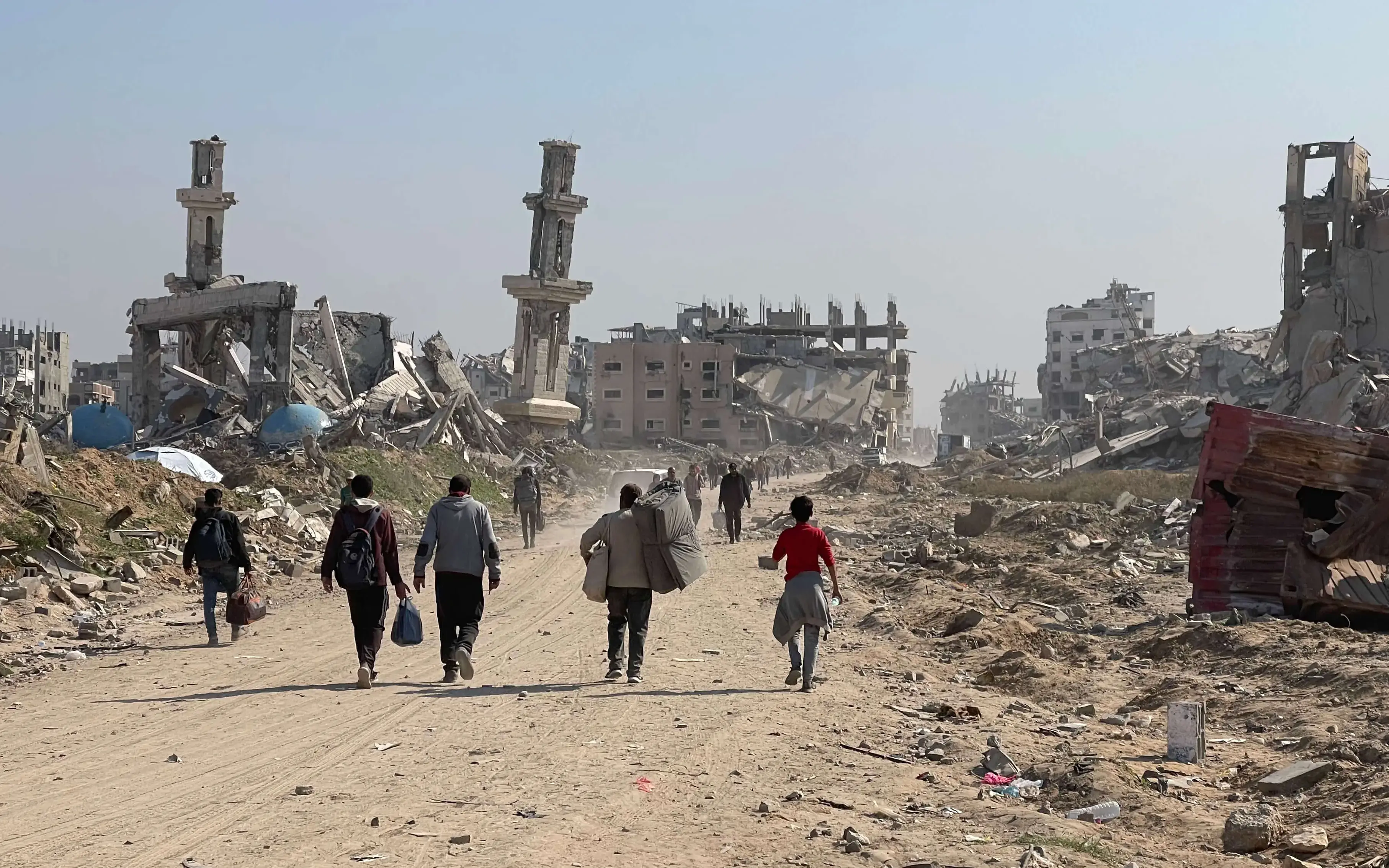Advocacy organizations for the rights of refugees are wary of the first step of the Migration and Asylum Pact in the European Union, agreed upon by European interior ministers.
"We have taken a major step towards providing Europe with a more efficient, solidarity-based, and fair asylum and migration system," stated Spanish Interior Minister Fernando Grande-Marlaska, immediately after the meeting of European interior ministers held in Luxembourg, which certified the new migration regulation that is expected to be crucial in finalizing a new - and long-awaited - Migration and Asylum Pact in the European Union (EU).
Can this agreement be described as a "resounding success," as the Spanish minister and many of his European counterparts were quick to claim? Organizations and entities working for the defense of human rights and refugee rights strongly disagree with this idyllic view presented by European interior ministers, and they warn that the text contains very concerning aspects that certify Europe's hardline stance against migration.
"It is a pact that we do not like at all because it deepens the externalization of borders, detention of migrants, and moves towards fewer guarantees in the right to asylum and the protection of refugees," points out Adrián Vives, Coordinator of Political Advocacy and Social Participation at the Catalan Commission for Refugee Action (CCAR).
Gemma Pinyol-Jiménez, Director of Migration Policies and Diversity at Instratègies, agrees, stating that "the pact is very focused on border control, neglecting the rest of the migratory instruments that should be implemented and jeopardizing the entire system established by the 1951 Convention and Protocol Relating to the Status of Refugees.”
Paying not to accommodate: the commodification of refugees
The text, agreed upon after years of negotiations, is intended to be the first step of the new Migration and Asylum Pact in the EU. Among other things, it advocates for mandatory relocations, includes a quota for the distribution of refugees in times of crisis, and sets a threshold of up to 30,000 asylum seekers per year based on the population and gross domestic product (GDP) of the host country.
However, the pact allows countries that do not wish to receive their allocated number of migrants to avoid doing so by paying 20,000 euros for each person they reject, with the funds being directed to a solidarity fund.
"This system of economic compensation represents the commodification of life and reception. It is far from any idea of solidarity and puts a price on the lives of people who, let's remember, are fleeing and in need of protection," says Vives. "In practice, it allows for the violation of the right to asylum by paying a sum of money, thereby commercializing people's lives and a right," adds Pinyol-Jiménez, who strongly believes that the pact is in line with undermining the right to asylum.
In this regard, Vives wants to make it clear that the reception of refugees cannot solely be a matter of solidarity, but rather it is necessary to address that we are dealing with an "issue of international law and the responsibility that states have towards refugees based on the commitments they have signed. Therefore, international law, respect for human rights, and the commitments made must prevail.”
Securitization of borders and a stronger Fortress Europe
Equally, the agreement entails a tightening of rules and deadlines for managing migratory flows and limits the assessment period for asylum or return applications to six months, a fact that, according to Pinyol-Jiménez, lays out significant problems, including a technical standpoint, and jeopardizes the principle of non-refoulement and the right to asylum.
We are talking about mandatory border procedures that will result in the detention of individuals with significantly fewer procedural guarantees compared to regular asylum procedures. This may involve the creation of more detention centers, which often become dark spaces for human rights, as pointed out by member of the European Parliament (MEP) Diana Riba. These procedures will not exclude families with children and unaccompanied minors.
According to the CCAR, they add that the rapid processing of applications will also result in discriminatory examination based on national origin: "What is being discussed is the possibility of rejecting asylum applications from nationals of countries with a low recognition rate from the outset," explains the organization's technician, who laments that the agreement "deepens Fortress Europe.”
Furthermore, Pinyol-Jiménez speaks of a "constant and ongoing process of securitization that has been underway for many years, which perceives migration as a threat and leads to short-term and border control-focused decisions, including maritime borders.”
Turn for the European Parliament and Spain's important role
Now, the document agreed upon by the Member States – with only Hungary and Poland voting against it, as they fully reject mandatory relocations – will have to be further specified and undergo a negotiation process that is expected to be tough and challenging in the European Parliament. Do organizations have confidence that the most controversial aspects of the pact can be addressed?
"It is true that the European Parliament advocates for a somewhat more protective approach, and it is possible that the negotiation may tone down the repressive and Fortress Europe aspects. However, it is evident that this pact is not a good starting point, and it will be very difficult to achieve what human rights organizations and refugee advocates propose," predicts the technician from the CCAR. In the same vein, Pinyol-Jiménez points out that "we have the European Parliament that we have," and therefore, the expectations for significant changes to the text are rather slim.
What is certain is that the Spanish state will have a very relevant role in this process, as it will hold the presidency of the Council of the EU from the second semester of this year, a decisive moment in which it will have to steer the negotiations with the Eurochamber.
The member of Instrategies believes that the Spanish presidency will do everything possible to claim the success of the pact's approval: "It is a topic that three previous presidencies have failed at, and the European Commission is already tired of dragging it along. Therefore, Spain would take credit if the pact is approved, although I think it has been born inadequate.”
From the perspective of the CCAR, they see it as an opportunity to exert political influence on the matter and ensure that they redouble their efforts to urge Spain to leverage its leadership in the negotiations to propose measures that are more respectful of human rights.
"The organizations are very clear that it is time to launch important political advocacy work and start talking extensively about the need to achieve a Migration and Asylum Pact that puts human rights at the center and is more protective of the right to asylum and the protection of refugees," asserts Vives.









Add new comment